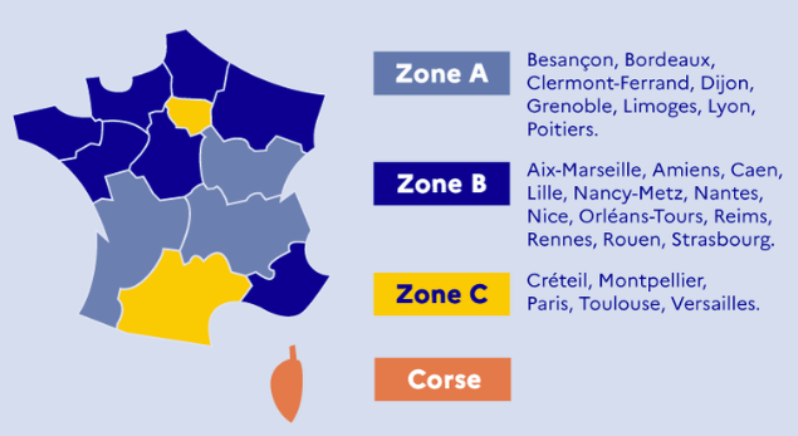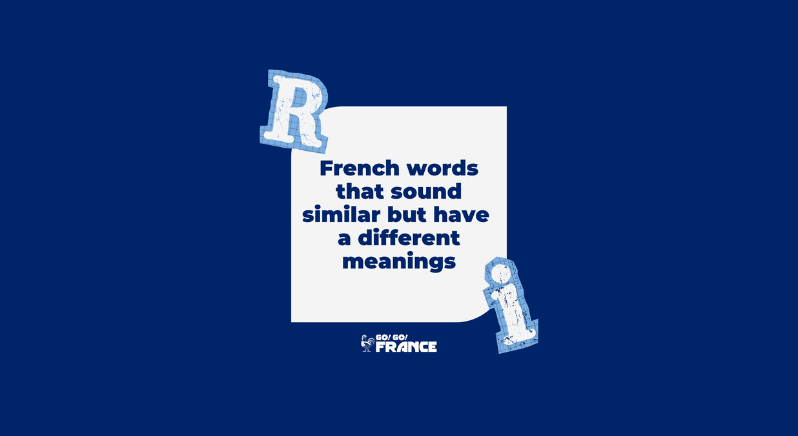Welcome to the vibrant world of French higher education! With a diverse array of subjects, universities in France cater to a broad spectrum of academic interests and career aspirations.
This guide is designed to illuminate the path for international students as they navigate through the intricacies of French universities, covering aspects like admissions, degree programs, and the LMD framework.
Admission Modalities
Gaining admission to universities in France typically involves meeting specific academic requirements and language proficiency standards. International students often need to undergo a preliminary application process through the online platform Études en France. Depending on the university and program, additional entrance examinations or interviews might be required.
As a general rule, to access higher education in France, students must have obtained the equivalent of the French high school diploma (baccalauréat, also called Bac), in their home country. For programs taught in French, a B2-level proficiency in French is generally the minimum level required by most universities. Language schools in France can help students reach their academic goals.
Degrees and ECTS
Universities in France offer 3 main types of degrees under the LMD framework:
- L stands for Licence (Bachelor’s degree)
- M stands for Master (Master’s degree)
- D stands for Doctorat (PhD)
- Licence: The Licence degree is completed over 3 years, divided into 6 semesters (S1 to S6), each corresponding to L1, L2, and L3 years respectively.
- Master: The Master’s program spans 2 years, consisting of M1 (Maitrise) and M2 (Master) years.
- Doctorat: The Doctorate (PhD) typically takes 3 to 4 years to complete, involving advanced research and a thesis.
The European Credit Transfer and Accumulation System (ECTS) is employed, where each academic year generally accounts for 60 ECTS credits, ensuring the international compatibility of degrees.
- Licence: Each of the 6 semesters (S1 to S6) in the 3-year Licence program typically corresponds to 30 ECTS credits, summing up to 180 ECTS credits upon completion.
- Master: Each year of the Master’s program (M1 and M2) usually accounts for 60 ECTS credits, leading to a total of 120 ECTS credits for the two-year degree.
- Doctorat: The Doctorate program does not have a fixed ECTS allocation as it is research-oriented. The focus is more on the thesis and research work rather than credit accumulation.
Read more about the ECTS framework here: https://gogofrance.com/en/blog/european-credit-system-ects/

Grading System
Universities in France typically use a grading scale from 0 to 20, with 10 as the passing grade. The general rule for considering a semester as passed and a Unité d’Enseignement (UE, or Course Unit) as completed or failed usually depends on achieving a certain grade or number of ECTS credits. Typically, a student needs to obtain a passing grade (often 10 out of 20) in each UE to earn the associated ECTS credits. If a student fails to meet this threshold, they may need to retake exams or the UE.
There’s often a provision for compensating grades between different UE. This means that a higher grade in one UE can potentially compensate for a lower grade in another, allowing a student to pass the semester overall. However, there are usually specific conditions for this compensation, such as a minimum grade that must be achieved in each UE, and it doesn’t apply universally across all courses or universities in France.
Evaluation System
Evaluation methods in French universities vary, often including a mix of continuous assessment, project/group works and most importantly formal exams called “partiels”. Partiels typically occur at the end of a semester and are crucial for assessing a student’s understanding and mastery of the course material covered during the semester. The performance in these exams often plays a key role in determining a student’s final grade for the course and whether they have successfully earned the associated ECTS credits.
For higher-level degrees like Master’s degrees awarded by some colleges, significant weight is given to dissertations or theses. These are rigorously assessed and are crucial for the successful completion of the degree.
International Recognition of Universities in France
Degrees from universities in France are highly regarded worldwide. The alignment with the LMD system and ECTS credits ensures that qualifications from France are recognized and respected globally.
Learn more about our French diplomas recognition in our dedicated article: https://gogofrance.com/en/blog/french-diplomas-recognition/
Plan Your Study In France
Studying at a French university opens doors to a world-class education system. The LMD system offers a structured, yet flexible approach to higher education, making France an attractive destination for international students seeking a blend of academic excellence and cultural immersion.
At Go! Go! France, we’re dedicated to making your dream of studying in France a reality. Through our tailored services, comprehensive support, and student-first approach, we simplify the visa application process and pave the way for your educational adventure in France.
When you feel ready to start, contact Go! Go! France team here to get your life and study in France journey started.











